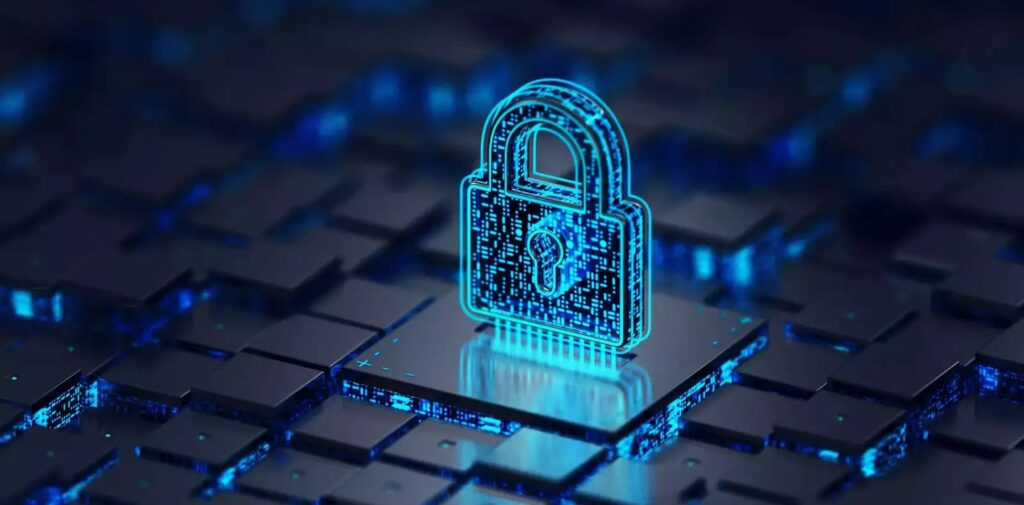In today’s world, everything is connected to the internet. From shopping to socializing, and from banking to studying, the digital world has become a part of our everyday life. As more and more people in India and around the world use the internet, the need to protect personal information and data has become more important than ever. This is where cybersecurity comes into play.
Cybersecurity means protecting computers, networks, and data from attacks, theft, or damage. But as the digital world grows, so do the threats that come with it. In India, the challenge of securing the digital frontier is becoming bigger. In this article, we will explore the challenges India faces in cybersecurity and what is being done to protect its digital future.

The Rise of Digital India
India is quickly becoming one of the largest users of technology and the internet. The government’s initiative, called “Digital India,” has encouraged more people to use smartphones, internet services, and digital platforms for everything from government services to business transactions. This digital revolution has made life more convenient and efficient. However, it has also brought along a new set of risks and challenges.
The growth of digital platforms means more people and businesses are sharing their personal information online. Whether it’s online shopping, online banking, or using social media, we leave behind traces of our personal data on the internet. This has made cybersecurity a top priority in India. But as we move deeper into the digital world, many challenges come up in securing the information we rely on.
The Growing Threats in Cybersecurity
As the number of internet users in India increases, so does the number of cybercriminals and hackers trying to take advantage of the digital world. Cybercriminals use a variety of methods to steal personal information, cause damage, or even hold important data for ransom.
Here are some of the common threats India faces in the digital world:
- Cyberattacks on Individuals: One of the biggest concerns in India is protecting the personal information of individuals. Cybercriminals often use methods like phishing (tricking people into sharing their personal details) or installing malware (malicious software) on computers and phones. This can lead to identity theft, where criminals steal important details such as bank account numbers or passwords.
- Hacking of Businesses and Government Websites: Another major challenge is the hacking of businesses and government websites. Hackers can break into systems to steal sensitive business data, government records, or even money. For example, when cybercriminals hack into a bank’s system, they could steal millions of rupees. This can lead to financial losses, privacy violations, and trust issues.
- Ransomware Attacks: Ransomware is a type of malicious software that locks people or businesses out of their own data and demands payment (ransom) in exchange for the password. It’s a growing threat in India, especially in hospitals, schools, and even government offices. The hacker demands money to unlock the system, causing businesses to lose valuable time and data.
- Data Breaches: Data breaches happen when cybercriminals gain access to private data, like credit card information, social security numbers, or medical records. When this happens, people’s personal lives are at risk, and businesses can face huge fines for not protecting data properly. In India, data breaches have become a serious problem, affecting many sectors like banking, healthcare, and e-commerce.
Why Cybersecurity is Challenging in India
While cybersecurity is important everywhere in the world, India faces some unique challenges that make it harder to protect against cyberattacks. Here are a few reasons why securing the digital world in India is tough:
- Lack of Awareness: A big challenge in India is that many people are not fully aware of the risks and dangers of using the internet. People often share their personal information carelessly, click on suspicious links, or download files without knowing the consequences. This lack of awareness makes it easier for cybercriminals to target them.
- The Speed of Digital Growth: India’s digital growth is happening very quickly. While this is great for the country’s progress, it has also outpaced the development of strong cybersecurity measures. Many people and businesses are still trying to catch up with the latest technology to protect themselves from cyber threats.
- Limited Resources for Cybersecurity: Although India has made great progress in technology, many smaller businesses and government departments still lack the resources to implement strong cybersecurity systems. Not every company or organization can afford to hire experts or invest in expensive software that can keep their systems safe.
- Weak Laws and Regulations: Another issue is that India’s laws regarding cybercrime and cybersecurity are still developing. While there are some laws to punish cybercriminals, they are not always strong enough to prevent attacks or catch offenders. As cybercrime becomes more sophisticated, laws need to adapt quickly to keep up with the changing landscape.
- Rural and Remote Areas: India has a vast population, and while cities like Delhi, Mumbai, and Bangalore are becoming tech hubs, many rural areas still lack basic internet infrastructure. This makes it difficult to educate people about cybersecurity, and people in these areas are often more vulnerable to cyber threats.

What is India Doing to Strengthen Cybersecurity?
Recognizing the importance of cybersecurity, the Indian government, businesses, and organizations are working hard to improve the country’s ability to protect its digital frontier. Here are some of the efforts being made:
Cybersecurity Policies and Laws
The government of India has introduced several policies to strengthen cybersecurity in the country. One important initiative is the National Cyber Security Policy, which aims to protect India’s critical infrastructure from cyber threats. This policy includes measures for securing data, protecting government systems, and training experts to handle cybercrime.
India has also passed the Information Technology Act, which punishes cybercriminals and helps the police investigate cybercrimes. However, more work is being done to update and improve these laws to match the rapid pace of technological change.
Creating Cybersecurity Awareness
To help people understand the importance of cybersecurity, the Indian government and private companies are working to raise awareness. Schools, colleges, and businesses are being encouraged to teach people how to protect their personal data. The government is also running awareness campaigns to inform people about common cyber threats and how to avoid them.
Training Cybersecurity Experts
One of the best ways to tackle cybersecurity challenges is by training more professionals who can work on protecting digital systems. India has been focusing on educating and training cybersecurity experts through special programs and certifications. Many colleges and universities now offer degrees in cybersecurity, creating a new generation of skilled professionals.
Improving Infrastructure
To handle the growing digital threats, India is also investing in improving its cybersecurity infrastructure. The government has set up the Indian Computer Emergency Response Team (CERT-In), which monitors cyber threats and responds to incidents. It works closely with other nations and organizations to ensure that India stays ahead in the battle against cybercrime.
Collaboration with Other Countries
Cybersecurity is a global issue, and India is working with other countries to tackle cyber threats. By sharing information and working together, countries can better protect themselves from cybercriminals who operate across borders.

The Road Ahead: Securing India’s Digital Future
The digital world is expanding rapidly, and so are the challenges of keeping it safe. While India has made significant progress in strengthening its cybersecurity systems, there is still much more to be done. As more people in India connect to the internet, it is essential to continue educating people, developing stronger laws, and investing in cybersecurity infrastructure.
The future of India’s digital economy depends on how well the country can protect its digital assets. It’s not just about securing data but also building trust among people and businesses that their information is safe. Cybersecurity is an ongoing battle, and every individual, business, and organization must play their part to create a safer digital environment for all.
In conclusion, cybersecurity is an important part of India’s journey into the digital future. As India continues to grow in the digital world, securing the digital frontier will be key to ensuring a safe and prosperous future for everyone.




